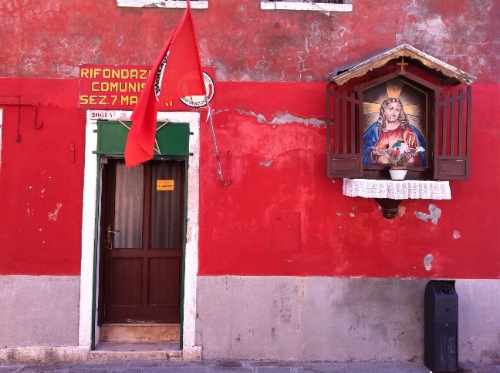Search
To search for an exact match, type the word or phrase you want in quotation marks.
A*DESK has been offering since 2002 contents about criticism and contemporary art. A*DESK has become consolidated thanks to all those who have believed in the project, all those who have followed us, debating, participating and collaborating. Many people have collaborated with A*DESK, and continue to do so. Their efforts, knowledge and belief in the project are what make it grow internationally. At A*DESK we have also generated work for over one hundred professionals in culture, from small collaborations with reviews and classes, to more prolonged and intense collaborations.
At A*DESK we believe in the need for free and universal access to culture and knowledge. We want to carry on being independent, remaining open to more ideas and opinions. If you believe in A*DESK, we need your backing to be able to continue. You can now participate in the project by supporting it. You can choose how much you want to contribute to the project.
You can decide how much you want to bring to the project.

The distribution according to country, of part of the exhibition space at the Venice Biennale, is the origin for a political reflection on the mythical Biennale. The title that binds this edition together also begs another consideration: which “nations” are the ones that illuminate this Biennale?
Understanding the “State” as the essential element that configures the international political reality can seem indisputable. However, it is necessary to understand that the validity or durability of some received structures is not eternal.
The post-industrial society is one of large financial corporations, trans-national businesses, non-governmental organisations and international alliances “for security and peace” – read OTAN-. These and other institutions have gained an evident presence and position, insistently questioning the factual sovereignty of what has been the only holder of power since Westfalia (1648).
What is more, a commodity called “citizenship” has developed new forms of social interaction that occur across networks, far beyond the powers of the state. Information and the virtual overcome physical frontiers, conferring a fundamentally more cosmopolitan character than ever. New levels of organisation point to techno-political advances of which we have seen only the first indices, and they don’t seem to heed the concept of “nation”; pointing more to a world view based on citizenship as a conglomeration of individuals.
On the other hand, if we associate the word “nation” with that of “state”, the result is notoriously ambiguous. The exception seems to be the rule when referring to the ensuing concept (Nation-State): the quantity of deterritorialized nations, nations without State, nations dispersed across various States, multinational States (and their inevitable debates), etc., go hand in hand with the resulting “nationalisms” and their respective legitimising discourses, which, one has to say, have demonstrated since their appearance a huge capacity to adapt and resist.
All things considered, it can seem anachronistic to place the accent (illumination) on the (Nation-) States at a time when one is debating whether they have a future in a globalized world. The current times exude the constant tension between what is given and what is desired, the inherited and the present. Should the Biennale participate in the dynamics of this institutional transformation?

Marina spent the first two years of her life without saying anything: they told her parents that she was internalizing. And even though it’s a while now since she learnt to talk, she still needs to internalize. To then shake things up, question, order, disorder and celebrate. She finds politics in many places and has a special interest in all that’s subaltern, in the “commons”, and in the points where all this has an impact on creative expression.
"A desk is a dangerous place from which to watch the world" (John Le Carré)